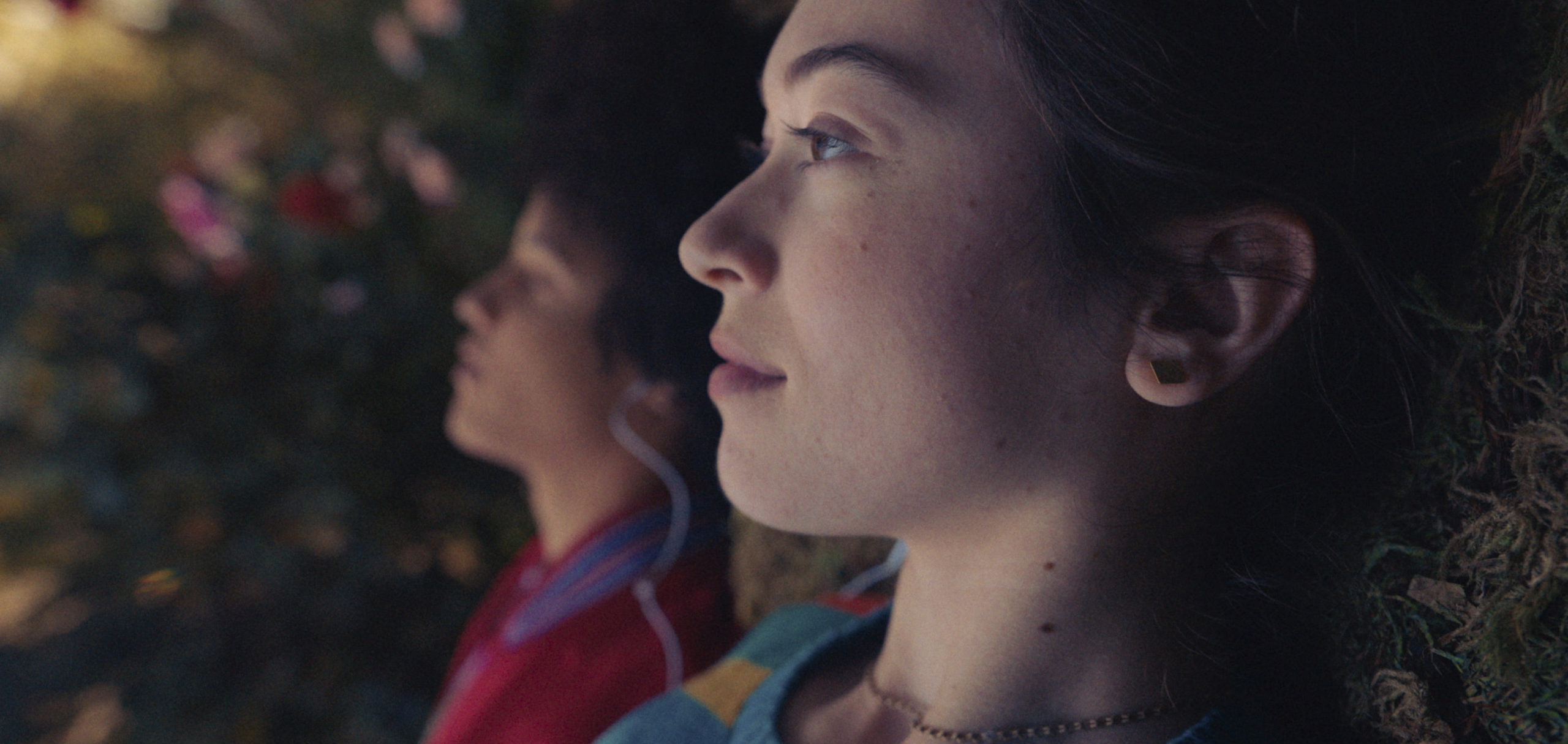There’s breathless, relentless energy to the work of Josephine Decker, a trait usually accompanied by a sense of the unexpected, never quite knowing where her narrative may turn or how her characters could express their mercurial emotions. Her latest film The Sky Is Everywhere, adapted by Jandy Nelson from her own novel, features a strong sense of the former without ever offering the latter. What results is an aesthetically imaginative, narratively banal YA adaptation hitting too-familiar beats despite its relatively invigorating style.
Following the sudden death of her older sister to fatal heart arrhythmia––the same issue that claimed the life of their mother––17-year-old Lennie Walker (Grace Kaufman), a talented clarinetist, is adrift. Understandably still reeling from the loss, Lennie attempts to rebuild her life in a moment of transition when others her age are consumed by the promise of young love and limitless possibilities of the future––feelings she also holds but is unsure how to express when consumed by so much grief. Though her hippie grandmother Fiona (Cherry Jones) and uncle Big (Jason Segel) provide care, they are often the target for the blame and frustration Lennie holds, while she also wrestles with picking up a friendship with her late sister’s boyfriend Toby (Pico Alexander) and becomes smitten with Joe (Jacques Colimon), a charming new student at her school and fellow musician.
Decker has little preoccupation for viewing this sorrow with stagnant solemnity, supplying no shortage of fantastical touches to capture Lennie’s journey. Musical notes bounce across the screen to convey a budding romance, bodies float high in the sky in a state of euphoria, life literally comes crashing down throughout the majestic forest of Northern California to convey anguish, text messages burst onto the screen with a playful aesthetic, admirers get entangled in a bed of roses during a blissful Bach listening session. Using a flurry of whip pans and dolly-ins, cinematographer Ava Berkofsky is always on the move while composer Caroline Shaw accentuates key moments with a splash of music atypical to the standard score. The cumulative effect is one of grand yet lo-fi imagination, still holding a DYI, hand-crafted sensibility that made Decker’s earlier work spark.
These aesthetic wonders notwithstanding, the script rarely offers anything but trite platitudes on the messiness of suffering. Despite a spirited ensemble, characters never feel fully formed or at least grounded in their emotions, often operating one touch too heightened. While this register matches some of Decker’s more whimsical elements, the attempt to balance it with genuine feeling is seldom harmonious. As Lennie tries to wrestle with this complex emotional toll, passages are often over-simplified in an attempt to hurdle through narrative turns with little insight into fleshing out her character and those around her. Perhaps it’s a symptom of being too faithful in the adaptation process, but the narrative feels at once exhausting and undercooked. One imagines both fans of the book and teenagers contending with familiar emotions may find more to latch onto here, but despite Decker trying her best to bring cinematic flair, Sky is routinely hobbled by treacly observations and broad characterization.
Along with a warm, candy-colored look courtesy production design by Grace Yun and costume design from Christopher Peterson, The Sky Is Everywhere is certainly a delight to behold; one just wishes Nelson mined a bit deeper in the adaptation process, pulling back on trite verbosity and letting Decker’s fanciful, psychologically striking vision do the talking.
The Sky Is Everywhere opens in theaters and on Apple TV+ on Friday, February 11.

